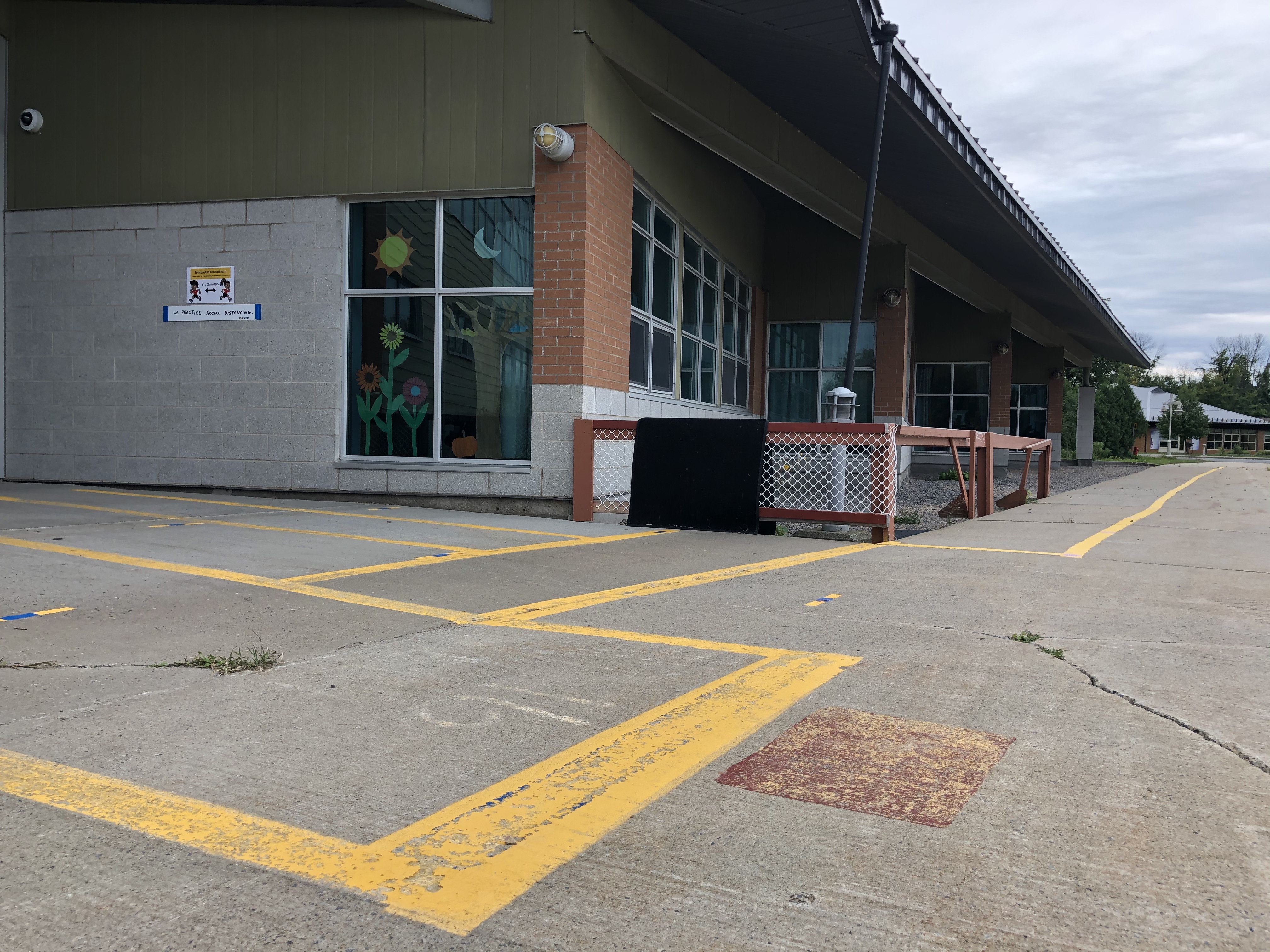English stories
Half of students in Kahnawake will learn from home
le mercredi 16 septembre 2020
Modifié à 15 h 43 min le 10 septembre 2020

In Kahnawake, reopening schools is being done differently compared to the rest of the province. The COVID-19 Task Force, the Education Center (KEC) and the Kateri Memorial Hospital Council (KMHC) on the territory decided to delay students’ return in class until the end of September. Measures are stricter than everywhere else in Quebec and half the parents opted to homeschool their children.
According to Dr. Annick Gauthier, COVID-19 Task Force Medical Advisor, it is a “careful, slow - maybe too slow for some – but very deliberate reopening, [following] businesses, restaurants, outdoor activities, and gyms”.
By acting with precaution since the beginning of the pandemic, Kahnawake has had no new cases of COVID-19 since May.
Unlike in Quebec, where masks are mandatory for students from grade 5 and up, for schools in Kahnawake, the measure will apply for students from grade 3 to 11. It’s encouraged for younger students as well.
“We may have to go through a process of training younger children”, admitted Robin Delaronde, Director of the Education Centre, during a press conference. She advised that these measures could also change.
Her colleague Juanita Belanger, the nurse in charge of infection prevention and control for the KMHC, explained that the hospital’s role is to support teachers with learning to use personal protective equipment if needed. Additionally, help includes teaching staff and students how to properly wear masks, hand hygiene, respiratory etiquette and cleaning.
“We are really working together with the Education centre, the staff, the janitors. We are working with everybody because we believe that this is a team effort”, says Belanger adding that they’re sensitive to parents’ worries.
Homeschooling
As per a survey done in August, half of the parents in the community will send their children back to schools. For others, the KEC built a guide for home learning.
In each of the three schools, distanced learning teachers were assigned for each grade level. They will support families by meeting with them and discuss any difficulties. Students will, however, be assigned to a class and a classroom teacher.
Although schools will have a responsibility for certain elements, “teaching and educating the students will be entirely upon the parents”. For example, parents will have to be present with their children during the learning process and during scheduled meetings, they must ensure that projects and assignments are done on time.
Dr. Gauthier shared that her children are attending school in Montreal and that they are wearing their masks when they are less than two meters away from others, even if it is not mandatory for them.
“Just like all of you, I am doing a health check every morning with my kids. I’m looking at a group of nine symptoms and if they have any of them, they will stay home”, she explained adding that this is what teachers will do and what is done in daycares as well.
Misconceptions
Dr. Gauthier expressed that there is fear that schools are more dangerous than anywhere else. She reminded the community that despite the anxiety, everything went well when businesses, including cigarettes stores, reopened.
Referring to data collected over the past 6 months, she affirmed that “kids get COVID-19 from their household members, and not from their friends”.
“We have multiple studies showing that kids that are under 10 to 12 years old don’t appear to transmit COVID-19 very well. Kids over 12 years old, as they get up to adulthood, transmit it to the levels of the rest of us adults”, she mentioned.
Parents in the community can decide if they send their kids to school outside of Kahnawake. If they don’t, they have to do home schooling, opposed to what was decided by the ministère de l’Éducation du Québec who stated that only medical reasons can allow children to do online learning in the rest of the province.